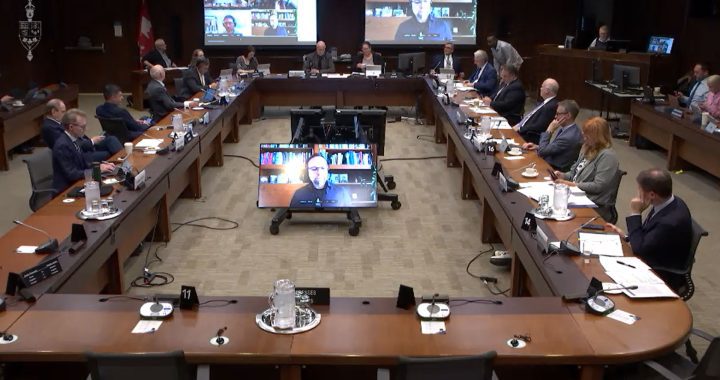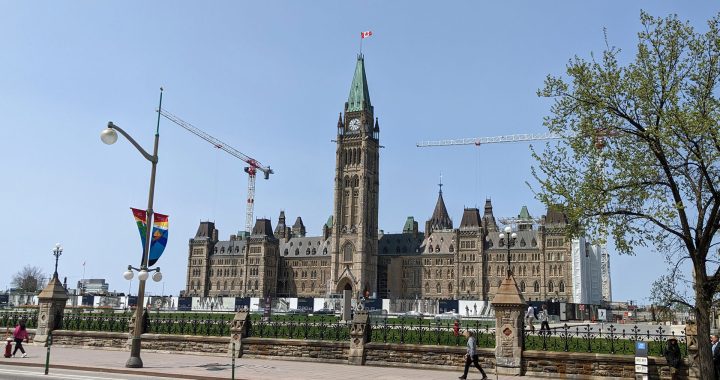RCMP say three First Nations have repeatedly asked protestors to leave their traditional territories in B.C., but those opposed to logging say Indigenous people lead their group.
Anti-logging blockades in the Fairy Creek watershed on southwestern Vancouver Island were on hold during the winter and spring due to dangerous weather conditions in the remote mountains around protest camps.
In an interview with APTN News, an environmentalist who has been raising awareness about old-growth logging says the RCMP are making re-populating the camps difficult.
“Fairy Creek is essentially a fortress if anyone does any action there,” said Joshua Wright, “RCMP crack down really hard; the industry is blocking all of the gates to get into Fairy Creek.
“Without trespassing into (the) worksite you essentially have to walk a 40 km round trip.”
Three First Nations
William Jones, an elder from Pacheedaht – one of the three First Nations affected, is opposed to old-growth logging on Vancouver Island.
He told APTN that Fairy Creek and Granite Creek are culturally significant.
‘It’s a place of important and spiritual value that is very important to my people. It is a place, a reviser of our past integrity,” he said.
Read More:
Behind the Thin Blue Line: Meet a secretive arm of the RCMP in B.C.
At the end of June, the RCMP said in a press release they removed blockades and made five arrests on a forestry road near Lake Cowichan.
They added that leaders from Pacheedaht, Ditidaht and Huu-ay-aht spent several months trying to ask protest groups to leave the area so logging could continue on their territories.
In Fairy Creek
Losah (Rose Henry), an elder from Tla’amin First Nation, said she has been providing support in Fairy Creek for nearly two years.
She said two young women from Pacheedaht have been on the ground leading the battle over old-growth logging.
“It’s a part of my teaching to respond to our youth because it’s their future that they are trying to save,” she said.
APTN reached out to all three First Nations but did not receive a response.
The battle around Fairy Creek is going into its third year.
Revenue-sharing
Teal-Jones, a Surrey-based logging company, has a revenue-sharing agreement with Pacheedaht.
Last year it secured an injunction against the blockades in Tree Farm Licence 46, which covers a large area of southern Vancouver Island.
By December 2021, the RCMP said they made 1,188 arrests.
In a statement, Teal-Jones Group said the Fairy Creek watershed is a small portion of the licence area, and they are not logging it.
“More than half of the old growth within TFL46 is protected in old growth management areas or other areas, as appropriate,” the company’s statement said. “There are some sensitive wildlife habitats in the TFL (including part of the Fairy Creek watershed). They’re protected.”
Protected areas
The company noted it does not log in protected areas.
“You may hear claims from blockaders that Teal Jones plans to harvest in these protected areas, regardless, but that’s baseless. These areas are protected by law, and we respect them,” the statement added.
But Wright shared recent footage of what he said is logging in the valley around Fairy Creek.
He said he recently stood on giant old growth stumps.
“I was on the ground in an area identified for deferral a couple of months ago…and I was standing on stumps eight-, nine-, 10-feet thick, and that’s really what we are seeing across the board – area after area that was supposed to receive protection (does) not receive protection,” Wright said.
Teal Jones said most of what it is cutting is second-growth trees, and half of the old-growth in Tree Farm Licence 46 is protected.
Some inside the protest groups want old-growth logging to end in B.C. altogether to help battle climate change.
Wright specifically mentioned the flooding and wildfires that have plagued B.C. in recent years.
“Old growth forests are one of the best defences against wildfires,” he said, “you have massive floods and these things are going to continue to happen and the best thing British Columbia could do to be resilient against climate change is to preserve its forests.”
Others, like Jones, are focused on protecting old-growth forests on Vancouver Island.
“Fairy Creek, and a few places up the island at the north end of the island, they now realize the last of the old-growth forest is it, it’s the last, and we have to save the last,” he said.









